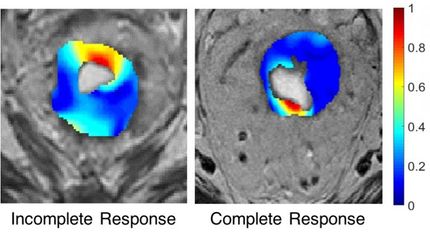MediGene Initiates Clinical Phase 1/2 Trial of Cancer-Killing Virus for the Treatment of Liver Metastases
Advertisement
The German-American biotech company MediGene AG announced the initiation of a clinical phase 1/2 trial of the drug candidate NV1020* for the treatment of liver metastases developing from colorectal cancer. NV1020* is currently developed as a cancer-killing (oncolytic) virus. It is a herpes simplex virus, genetically modified for the specific destruction of tumor cells without harming healthy tissue. The trial will evaluate safety, tolerability and efficacy of NV1020* as well as its synergies with chemotherapy. In this trial, about 30 patients will be treated in up to 7 clinical centers in the USA. The positive results obtained in a clinical phase 1 trial of NV1020* form the basis for this trial. MediGene expects the results of the phase 1/2 study by mid 2006. The sales potential for NV1020* is estimated at over 200 million Euros, provided that the three-step clinical development is successful and marketing authorization is granted.
Dr. Peter Heinrich, Chief Executive Officer of MediGene AG, comments: "Cancer-killing viruses like NV1020* are among the most innovative products of today's drug development. If the development of NV1020* proceeds as successfully in the future as it has up to now, MediGene may become the first company wordwide to develop a virus mutant cancer drug to market maturity. This could be a very valuable contribution to improvement in cancer therapy."
NV1020*: MediGene's oncolytic herpes simplex virus (HSV) NV1020* is designed to selectively multiply in tumor cells, thus destroying the tumor (oncolysis). The technology is based on the assumption that oncolytic HSV act more selectively and efficiently than conventional cancer therapies, without leading to severe adverse events. They could provide a therapeutic alternative against tumors that are inoperable or have developed a resistance to chemotherapy or radiotherapy. There may be also a synergistic effect of combining oncolytic HSV and standard therapies such as chemotherapy.
Study design: The trial will be composed of a part to determine the appropriate dosage, followed by a phase 2 part investigating tolerability and efficacy utilizing the optimal dose of NV1020*. The patients participating in the trial suffer from colorectal adenocarcinoma which cannot be removed by surgery. In the course of the trial, NV1020* is administered to these patients four times, followed by standard chemotherapy. The first study center has been initiated and the first patient has been evaluated for study eligibility.
*) temporary name while under development






















































